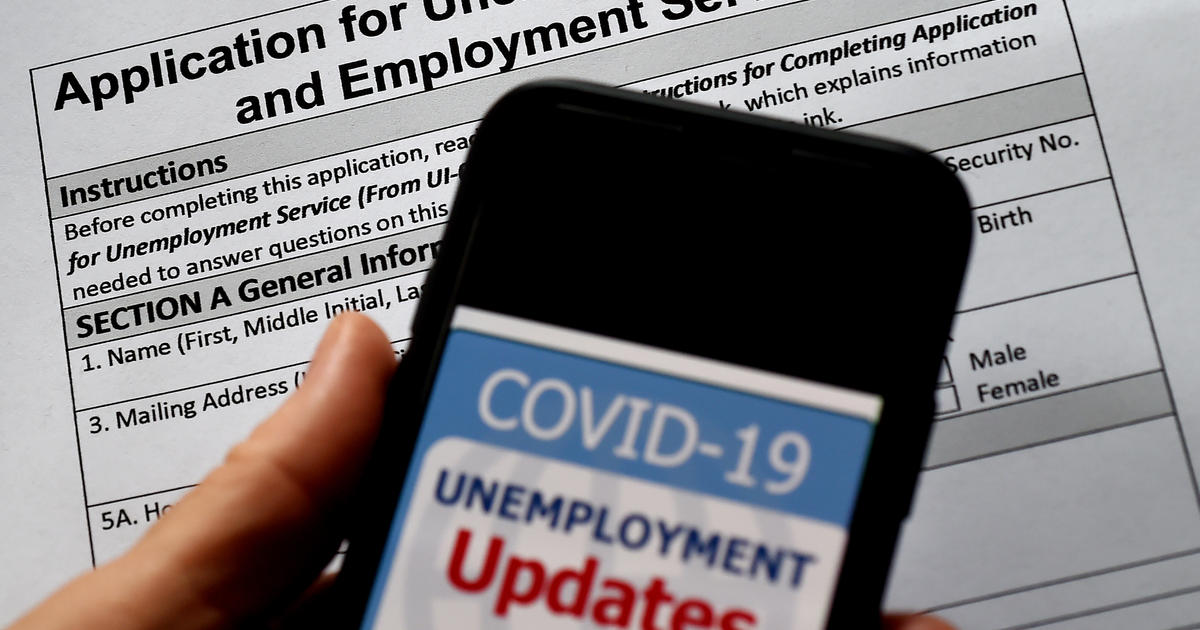
As more states look to end federal enhanced unemployment, nearly 2 million people could lose at least some of their unemployment benefits
CBSN
Nearly 2 million Americans could lose at least some — and in many cases all — of their federal unemployment benefits starting next month, as a growing number of Republican governors have announced they will end their states' participation in the federal programs as coronavirus pandemic restrictions ease.
But some progressives are calling on the Biden administration to find ways to continue at least some of that aid, and the administration is examining the matter. The end of federal enhanced unemployment benefits could affect more than 594,000 unemployed workers in Ohio, more than 268,000 in Georgia, more than 190,000 in Arizona and more than 147,000 in Missouri alone, according to the Century Foundation, a progressive think tank. While programs are administered through states, it is federal money, so those opting out are also leaving more than $10 billion in funds going directly to their states on the table.
Springtime brings warmer weather, longer days and nature's awakening across much of the country. It also brings higher chances for tornadoes, large hail, flash floods and damaging winds — and that means more alerts about threatening forecasts, which often come in the form of watches and warnings. There is a distinct difference between the two, particularly when it comes to what they mean about taking action when the weather takes a turn for the worse.

Santa Fe, New Mexico — A representative for the estate of actor Gene Hackman is seeking to block the public release of autopsy and investigative reports, especially photographs and police body-camera video related to the recent deaths of Hackman and wife Betsy Arakawa after their partially mummified bodies were discovered at their New Mexico home in February.

In the past year, over 135 million passengers traveled to the U.S. from other countries. To infectious disease experts, that represents 135 million chances for an outbreak to begin. To identify and stop the next potential pandemic, government disease detectives have been discreetly searching for viral pathogens in wastewater from airplanes. Experts are worried that these efforts may not be enough.










